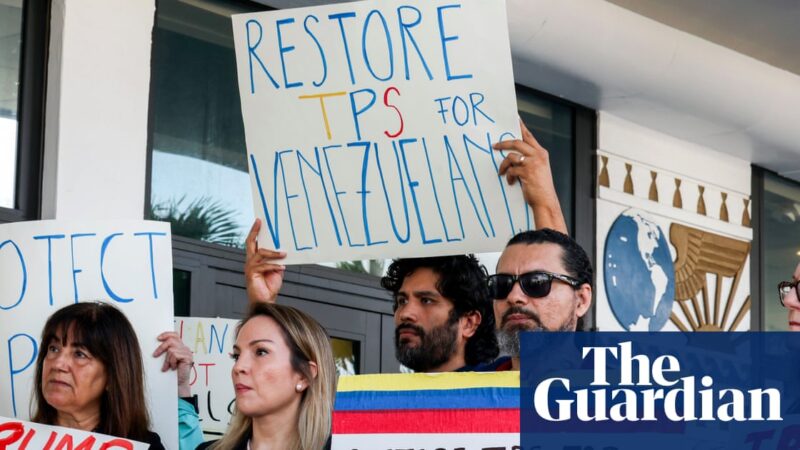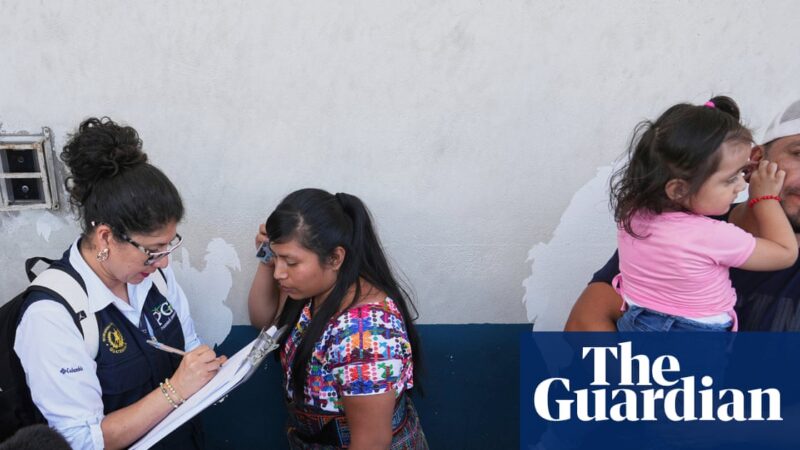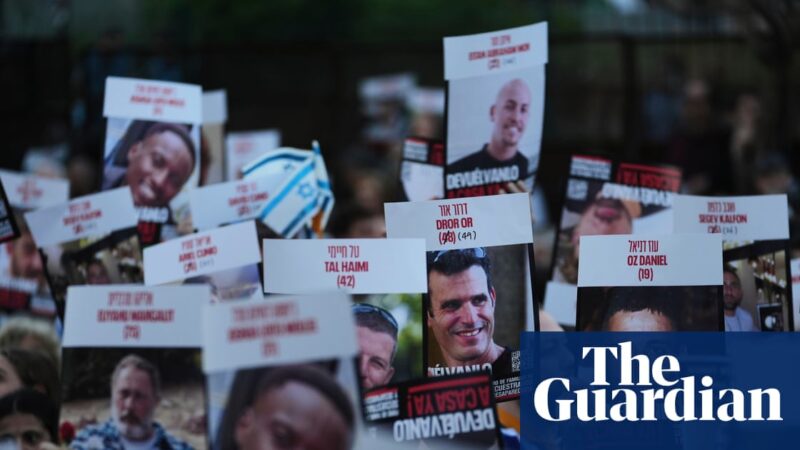A ‘hostile takeover’: ousted CDC official raises alarm over RFK Jr approach to infectious disease | Trump administration
Robert F Kennedy Jr, the secretary of the US Department of Health and Human Services (HHS), has avoided meetings with top health officials, even as deadly outbreaks unfolded, and pushed to make unprecedented changes to the childhood immunization schedule, according to a recently ousted leader of the US Centers for Disease Control and Prevention (CDC).
Debra Houry, the CDC’s former chief medical officer, spoke with the Guardian after testifying before a Senate committee about her eight months serving under Kennedy, offering insight into a health secretary who has been criticized as shunning expertise in favor of spreading misinformation, denigrating science, and dismantling institutions crucial for Americans’ health.
Houry’s account adds to depictions from former CDC director Susan Monarez of a distant and at times explosively angry leader of the US public health system – leading Houry to call for Kennedy’s resignation.
The CDC’s priorities have changed dramatically, she pointed out.
“It really represents a hostile takeover of the agency,” she said. “It gives me concern about what we can trust coming out of the overall agency as well, not just on vaccine safety.”
When Tom Price became HHS secretary during Donald Trump’s first administration, he called senior agency officials to Washington DC for a two-week meeting, laying a strong foundation and staying in frequent contact. Other health leaders took a similar approach.
“In the prior Trump administration, I had briefed the secretary, I talked to the assistant secretary all the time,” Houry said. Two top HHS officials from Trump’s first administration have now offered to serve as job references after she left the CDC position without a backup plan, she said.
But in the first eight months of the second Trump administration, Houry never once briefed Kennedy on any topic. She spent little time with him at all.
“I met him once,” she said – when Kennedy toured the empty offices of the CDC three days after a gunman killed Officer David Rose and left CDC staff traumatized and terrified even of putting their names on studies about vaccines.
Constant attempts to reach Kennedy’s office were fruitless, said Houry, who resigned on 27 August.
Houry served under six CDC directors spanning four administrations, and she was chosen to lead the transition between the Biden and Trump administrations because she has a reputation for embracing new administrations and helping implement policies.
She prepared for Kennedy as she would have dived into preparations for any circumstances back when she was an emergency physician. “I literally read three of his books, I took notes, I looked at themes, I thought about how we present things to him, like on our vaccine safety databases and being more public-facing,” she said.
But she never got the chance to present anything.
Even amid America’s worst measles outbreak in 30 years led to three deaths, Kennedy promoted unfounded treatments and framed vaccination – the only way to stop the outbreak – as a personal choice. He received no input from Houry, Monarez, or the leaders of CDC institutions specializing in topics like disease outbreaks and vaccinations.
“During the measles outbreak, when he was saying incorrect things about vaccines – like they killed people or they had fetal parts – I sent notes to our CDC leadership team to share about how we could help him, and if there were ways we could send talking points to him,” Houry said. But her attempts to brief the secretary were rejected, she said.
Measles wasn’t the only pathogen of concern. Child deaths from influenza soared to the highest rate ever seen outside of a flu pandemic, bird flu became even harder to track, and Covid continued circulating, disabling, and killing Americans.
“We would have loved to have the conversations with him,” Houry testified at the hearing in September.
“Many times I would send emails to our leadership team to share with HHS when he did say things that weren’t scientifically correct, so that we could help support him.”
Instead, Kennedy moved to restrict vaccines. He removed the recommendation for pregnant people to receive Covid vaccines, and he limited the shots to children with underlying conditions – a limitation the US Food and Drug Administration (FDA) applied to all Americans when it approved the vaccines.
Houry only learned about Kennedy’s Covid vaccine changes in a post on X. She never received any evidence or data for the decision, she said.
Kennedy’s hand-picked advisers to the CDC, the Advisory Committee on Immunization Practices (ACIP), voted in September to remove a recommendation for the measles, mumps, rubella, and varicella (chickenpox) vaccine, which about 15% of American parents chose for their children.
ACIP also discussed changing the current recommendation on giving the hepatitis B vaccine at birth.
Kennedy was pushing to change that recommendation when Houry left the CDC, she said. Stuart Burns, a political appointee at HHS, reportedly told her that Kennedy suggested moving vaccination to age four.
At the ACIP meeting in September, the advisers discussed moving the dose to one month after birth, in consultation with a pediatrician.
It “may be” that advisers or officials felt pressure to change the recommendation to one month after public backlash. “It’s hard to say. I just know what I was part of a few weeks ago,” Houry said.
Ultimately, the advisers put off the vote to change the recommendation.
Even waiting for a month to prevent hepatitis B can damage children’s health.
“Back in the 90s, when there were delayed doses, we had kids with liver disease,” Houry said. “At one or two months, there were still missed cases. People get lost to follow up, you can have false negative tests, and there’s household exposure.”
Even if the person giving birth tests negative, there are opportunities for household transmission – even from clipping nails or playing sports. About half of people with hepatitis B don’t know when they acquired it.
“I was an ER doc. I know how our health care system works in the US – not everybody comes in for prenatal care, not everybody has their birth in the hospital,” Houry said. “It’s that first year of life where, if a baby is infected, they’re going to have the worst outcomes with a hepatitis infection, and that’s why it’s really important to give it early on.”
Yet Kennedy continues spreading anti-vaccine messages. He recently posted a video on X to “shred” the idea that vaccines have saved millions of lives.
When Monarez was fired after 29 days on the job, Houry and two other top officials, Demetre Daskalakis and Daniel Jernigan, planned their joint exit. “I knew I couldn’t continue,” Houry said.
They’d discussed leaving before “because we had many concerns over the past couple of months. It was really building up,” Houry said. “Then when Susan was ousted we knew that there was absolutely no scientific leadership at that point.”
They announced the resignations together “to sound a greater alarm,”, she said.
Now, there are few experienced leaders left at the CDC; some 80% of experienced center leaders were laid off or terminated, or have resigned or retired. Houry was the only permanent career official in the CDC’s office of the director by the time she left; there were 10 political appointees remaining, she said.
“I’m really concerned, because if people have increased vaccine hesitancy, if we don’t have the platforms like mRNA to develop vaccines, we’re not going to be prepared,” she said. “I fear for public health in our country.”





